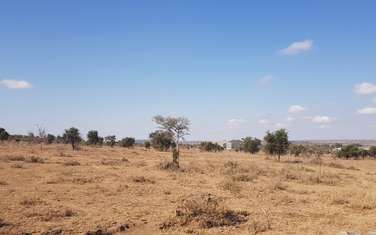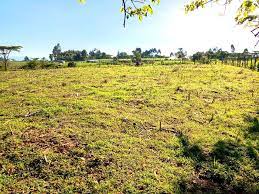Are You Buying Land In Kenya? Here are 9 Basic Factors to Guide You

Introduction

Owning land in Kenya has numerous benefits, the most important being the freedom from paying monthly rent. Still, buying land in Kenya is a bit different from purchasing other types of assets. For instance, you must follow due process to avoid getting conned and losing your hard-earned money.
In this article, we will outline nine important factors you should remember to successfully buy land in Kenya.
1. Have a Goal in Mind Before Buying Land in Kenya
Most people will buy any piece of land wherever they can find it. While it is not wrong to own many pieces of land, you are better off purchasing a plot that will actively serve your interests, such as income generation and home ownership.
Therefore, consider the purpose of buying land in Kenya. Where would you wish your potential piece of land to be located? Moreover, do some research on the desired attributes of the land. Check out the type of soil, accessibility to major towns, and other nuances like its topography.
2. Identify the Piece of Land and Conduct a Site Visit
For this step, you must visit the piece of land you intend to buy. The purpose of scouting is to engage brokers, land agents, and the locals as you gather more information on the parcel of land. You’ll be better served visiting the property in the company of a trusted family member or a friend who has experience buying land.
Since you will meet the seller during the site visit, you should confirm their identity. Ask for their ID or KRA pin to verify that they are the real owner.
3. Conduct Due Diligence on the Land Buying Company
This is key if you are buying from a real estate company. A key factor you should investigate is the identity of the directors and shareholders. It is not uncommon, especially in Kenya, for potential land buyers to get duped into buying land from shady entities. You can also check out the company’s reviews made by previous customers.
4. Engage an Experienced and Trustworthy Advocate

An advocate is a key actor when transferring land in Kenya. Therefore, you must hire an experienced lawyer licensed to practice in the country. Ask for a copy of their LSK certificate to ascertain their genuineness.
An advocate plays several roles in ensuring a smooth transfer of land from the seller. Firstly, they’ll confirm whether the landowner is genuine to avoid unscrupulous dealers. Also, a lawyer will find out whether your desired parcel of land is charged or not and how you can go about obtaining a partial discharge.
Furthermore, your advocate will help you to engage a certified surveyor. The surveyor will then confirm the size and shape of the plot. They will also report on the status of the land and whether there are ongoing disputes.
5. Negotiation and Offers
Once you have established the major parameters of the and in question, you can then negotiate for a favorable price with the buyer. The information gathered from your site visit and other data, such as local land prices, should give you an idea of the final cost.
Usually, your advocate will draw up an offer letter that documents your information and that of the seller, land description, proposed price, and modes of payment. Depending on what works for you, you can decide between a short-term payment schedule and a long-term alternative.
There will be some back-and-forth as the seller will likely give a counteroffer for your proposed purchase price.
6. The Sales Agreement
Once you reach an agreed purchase price, you will need to sign the sales agreement prepared by the seller’s advocate. Ensure you sign physical copies of the agreement in the presence of a witness. Upon completing this step, you will be required to deposit a down payment to the seller’s account via their advocate. The deposit is normally 10% of the final purchase price.
7. Set Up an Escrow
An escrow account is owned by the buyer and seller to facilitate a smooth transition once the full purchase price is paid. You must set up an escrow account when buying a plot of land that is awaiting subdivision or if the parcel is charged.
8. Obtain a Copy of the Transferred Title
Normally, the seller will not hand over the original title deed until you have completed the agreed purchase price. Therefore, you can only get a copy of the transferred title.
9. Pay the Balance to Receive the Original Title
Once you complete paying the purchase price, you’ll then receive the original title transferred to your name. A shorter payment duration will cost you much less than if you opted for an extended payment period.

Reasons for Buying Land
Land is a solid investment option whose value increases annually. Whether you are looking to build a home for your family or develop rental properties, buying land in Kenya diversifies your portfolio. Your property is a potential source of cash flow that will cushion you and your family during these harsh economic times.
Moreover, land is an important factor of production. You can use your newly acquired property to grow food to sustain your family and effectively redirect your budget toward other investment options. Besides agriculture, you can use your plot to set up different kinds of manufacturing operations.
The Takeaway
In a nutshell, owning land is the gateway to multiple wealth-generating options. That is why every Kenyan, employed or not, dreams of becoming a landowner.
On the flip side, many rogue land dealers are taking advantage of Kenyans’ aspirations of owning land. As a result, some unsuspecting Kenyans often get swindled off their money with the promise of becoming landowners. However, our guide should inform you of what to keep in mind when buying land in Kenya. Following the due process and being diligent throughout the process is key to getting the land you desire anywhere in Kenya.




1 Response
[…] Purchasing land in Kenya can be a rewarding yet challenging endeavor. With a growing population and economy, demand for vacant plots continues to rise across the country. This guide will provide an overview of the Kenyan land market and factors to consider when looking to purchase property for development or as an investment. […]